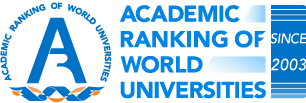The University of Campinas is a public university funded by the State of São Paulo. It was established in 1966 in the city of Campinas, with the goal to become an academic center of excellence, producing world-class basic and applied research, providing high-standards undergraduate and graduate education and serving as a catalist for economic and social development. Currently UNICAMP offers undergraduate degrees in 66 majors, including medicine, dentistry, several engineering specializations, basic natural and human sciences, applied sciences, teaching and arts. Its admission process is one of the most competitive in Brazil, with nearly 57,000 candidates for 3320 incoming students. Undergraduate education at UNICAMP is provided by the State of São Paulo for all its students free of charge. In addition, housing, meals, transportation and a living stipend may also be provided on a need basis, so that of the 17,000 undergraduate students at UNICAMP, over 2,200 receive some support.Undergraduate education at UNICAMP operates in three campuses: the School of Dentistry in Piracicaba, the College of Applied Sciences and the College of Technology in Limeira, offering undergraduate degrees in technology and business administration, among others, and its main Campus in Campinas, with eighteen other Schools and Colleges. In addition, UNICAMP operates a large teaching and research hospital complex in Campinas, serving as center of reference for millions of people, and runs several community hospitals in nearby cities. The university has 1,800 faculties, with a large research output - close to 10% of all indexed scientific papers in Brazil have a UNICAMP co-author. In addition, UNICAMP is the Brazilian organization with the largest technological output, with over 81 patents requested each year since 2002. The University budget for 2012 was close to U$$ 2,300,000,000, with 80% originating from the State budget. Overall, UNICAMP is an internationally recognized center of academic excellence, with a very distinct profile among Brazilian higher education institutions as a leader in technology, health sciences, natural sciences, human sciences and the arts.

